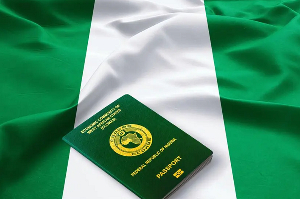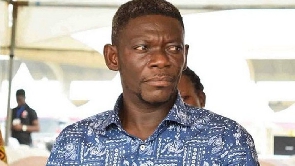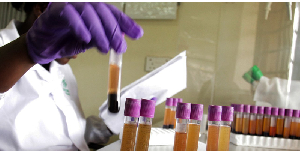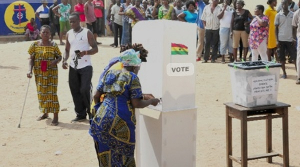- Home - News
- TWI News | TV
- Polls
- Year In Review
- News Archive
- Crime & Punishment
- Politics
- Regional
- Editorial
- Health
- Ghanaians Abroad
- Tabloid
- Africa
- Religion
- Election 2020
- Coronavirus
- News Videos | TV
- Photo Archives
- News Headlines
- Press Release
General News of Wednesday, 10 July 2002
Source: Ghanaian Chronicle
Pay more or sleep in darkness - VRA Boss
Dr. Charles Wereko-Brobby, Chief Executive of the Volta River Authority (VRA), has asked Ghanaians to brace themselves up for the payment of 'realistic' tariffs or be prepared to sleep in darkness.
Such was the man's conviction that the days of cheap electricity are over that he chose for the title of a presentation he made "Akosombo Nkanea Asa!"
That loosely translates into 'the free electricity light from Akosombo is finished.'
Speaking at a day's overview of power supply at the Kpong generation station yesterday, the CEO stressed that the question now should not be whether tariffs should be increased or not; but what price should be paid as economic tariffs for reliable supply of power.
The review done with editors and senior journalists covered alternative power supply in the face of growing inadequacy of the Akosombo and Kpong hydro-generating dams.
Participants also discussed the impact of low tariffs on the VRA's finances, challenges for reliable power and bridging the gap between demand and supply of power.
Quoting figures generously to support his argument, Dr. Wereko-Brobby said government is largely subsidizing electricity consumption for the relatively richer in the Ghanaian society, while the poor rural folk buy from inferior but more expensive sources.
The call for the payment of tariffs that can cover production costs of the VRA and its sole domestic customer, the Electricity Company of Ghana (ECG), is actually not new but powerful interests in society (notably the NPP when it was in opposition) had resisted it.
In what seemed a jovial swipe at energy minister, Albert Kan-Dapaah, the VRA chief, said, "when you are in opposition, you can talk about affordability freely, but when you get into government, you look at the matter slightly differently."
After championing the fight against tariff increases, using the word affordability as Minority Spokesman on Energy, Kan-Dapaah has now come to realize that the word carries double "f", he said, throwing the gathering into laughter.
Illustrating the precarious position of the energy sector, the CEO said the Akosombo and Kpong dams have the capacity of producing 4,800 GWh/year.
But for some time Akosombo was being made to generate more than its firm capacity, something that threatened the lifespan of the dam.
Against that capacity, the total demand for power this year is 8,346 GWh.
The need had, since the late 1980s, arisen for alternative sources of power to be explored, including thermal plants and importation of power from neighbouring Cote d'Ivoire both of which are far more expensive.
Eventually the West Africa Gas Pipeline, when completed, will convey gas to Ghana from which additional 300 MW of power would be generated.
Dr. Wereko-Brobby added that the Ghana National Petroleum Corporation (GNPC) barge, over which so much furore was generated under the Tsatsu Tsikata administration, is to be returned home to generate additional power.
As these alternative sources are more expensive and are piling up debts for generations unborn, the VRA chief warned of imminent collapse of the power industry unless Ghanaians pay realistic tariffs.
"The VRA would have been declared bankrupt long ago, had it been a normal electricity generating firm."










